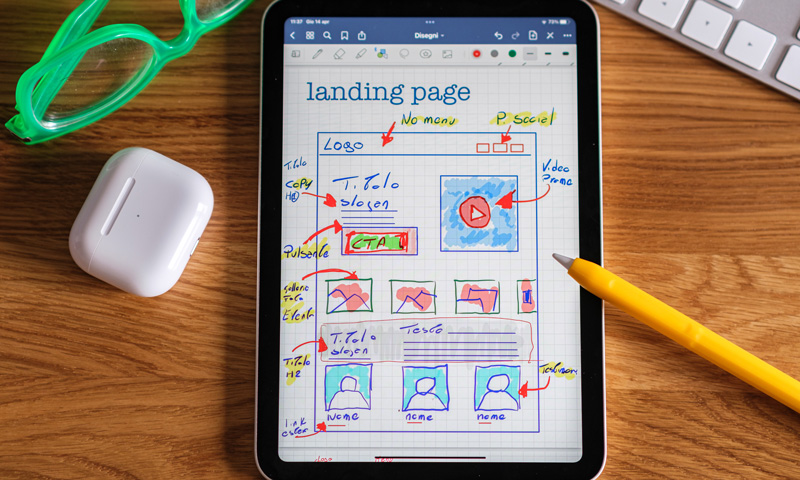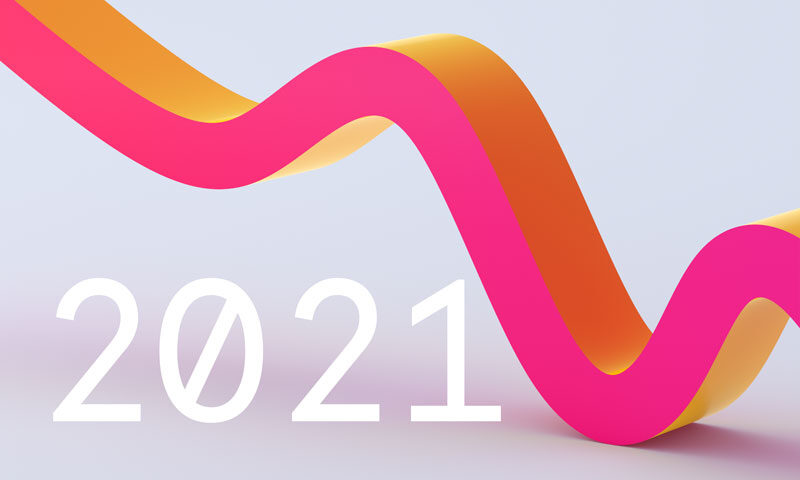
5 Answers to Give a Web Agency
The website is the focal point of your online presence. Social media, paid advertising campaigns, search appearances, content creation, sponsorships and collaborations – all contribute to the conversion goals of your website.
In the digital world, you have seconds to successfully convert a casual site visit into meaningful engagement. So the message your website transmits to consumers must be as clear and effective as it is creatively rich.
If you are enlisting the help of professionals to create a website, they will need some key pieces of information from you.
Treat this as a cheat sheet for helping your chosen web agency carry out the scoping necessary to develop a unique website for your business.
What are you looking for?
During kick-off meetings, agencies plan a road map for the website development project. To be able to do this, they first need to understand your main objective for creating a website. Are you interested in building an e-commerce website or will the site be informational in nature? Will the site provide online bookings, etc.?
Try specifying your objectives in marketing terms – e.g. building awareness, providing information, reinforcing customer loyalty, generating new sales leads, etc.
Prioritising some objectives over others can help streamline your message.
Your Unique Selling Points (USPs) can further refine the message and make you stand out from the competition. It’s a bonus if you can share key brand taglines or top-level messages – more material for the professionals to get a feel for what your brand stands for.
Who is it you’re talking to?
It is vital that you provide your agency with a breakdown of the targeted audience segments – e.g. age, gender, social position, location, etc. This information helps build comprehensive customer personas.
Think about who needs to visit the site to meet your goals and objectives and what will be their primary reason to visit your site. If you have multiple audiences, like commercial partners and customers, you can consider these questions for each segment.
That also applies to different roles within an audience category – e.g. a purchasing manager will have different interests than a CTO or CEO.
Rather than trying to cater for too many audiences, try to be selective, tailoring your site to the key audiences most likely to help you meet your business objectives.
How do you want it to look and feel?

One of the main aims of web design is to capture the audience’s attention and channel it into measurable action. It is also as much about designing with user intent in mind. You want to make the experience as visually appealing and intuitive as possible so that the user can easily navigate the site and arrive at the information they want in just a few clicks.
No matter your end goal in terms of user engagement on the site, reducing the number of options on a page, in general, leads to higher conversion rates. This can be achieved by establishing a clear hierarchy of site elements and designing the interface around them.
The site design can adopt any of the following strategies or a combination:
- It can be brand-led
- It can be content-heavy displaying lists of widgets, specs, and reports with a supporting interface built around it
- It can be image-led (e.g. a fashion or cosmetics brand)
- It can have a modern (aimed at a young audience) or traditional (e.g. financial services) approach
- It can have an idiosyncratic approach – breaking existing moulds to stand out from the competitors in the industry
- It can be mobile-first – intentionally designed to prioritise the user experience on mobile screens
What do you want to showcase?
You will need to provide your agency with a good indication of the content to be displayed on the site whether that be static, informational marketing text, brochure text, informative pictographs, photos/videos or custom copywriting pieces.
Share samples of images/ diagrams/ infographics that constitute your brand imagery and provide access to an image library of your assets if you have one.
Also, let them know if you will be generating and supplying content ready to populate the site or if you will need their help with tweaking or polishing the source content and giving it a consistent tone of voice.
Try to flesh out ideas surrounding future promotional campaigns during the scoping process. This can lend the site additional flexibility to accommodate various content formats.
Don’t forget to mention any additional features that the site should support, e.g. news, enquiries, location maps, etc.
When do you want it?

You will agree to a timeline with your agency for the overall project including development milestones and the completion of each stage. In turn, you will be expected to sign off at different stages in the development process to ensure the project continues to progress. Allow time for feedback and edits as well as your time to gather content – it often takes longer than estimated.
It is important to discuss your preferred timelines with the developers to make sure that deadlines take account of your requirements, the time it takes to generate content and a realistic timeframe for the agency to build a finished site.
Although there will be many other considerations to be teased out during scoping, these five questions are a good place to start.
Let Neworld guide you on your digital branding journey.
Keep Reading

Social Media Blog 2: The Cost of Social Media Marketing

Social Media Blog 3: How to Grow Social Media Following...

Social Media Blog 4: Where Do Brands Live?

Social Media Blog 5: Being Authentic on Social Media

Social Media Blog 6: Checking in on Brand Loyalty

Social Media Blog 7: The Power of Niche on Social Media

Social Media Blog 8: Online Privacy

Digital and Social Media Trends for 2021

How Can Brands Celebrate Pride Month?

Digital and Social Media Trends for 2023

The Essentials of Website Security
